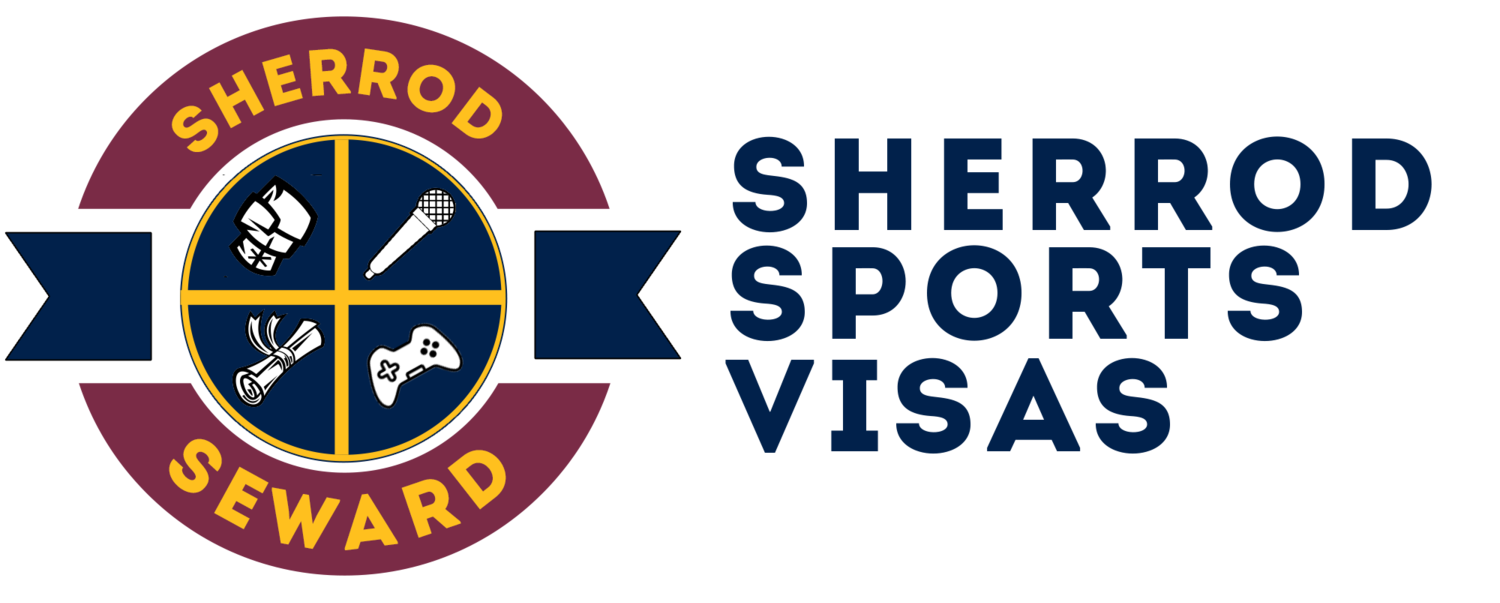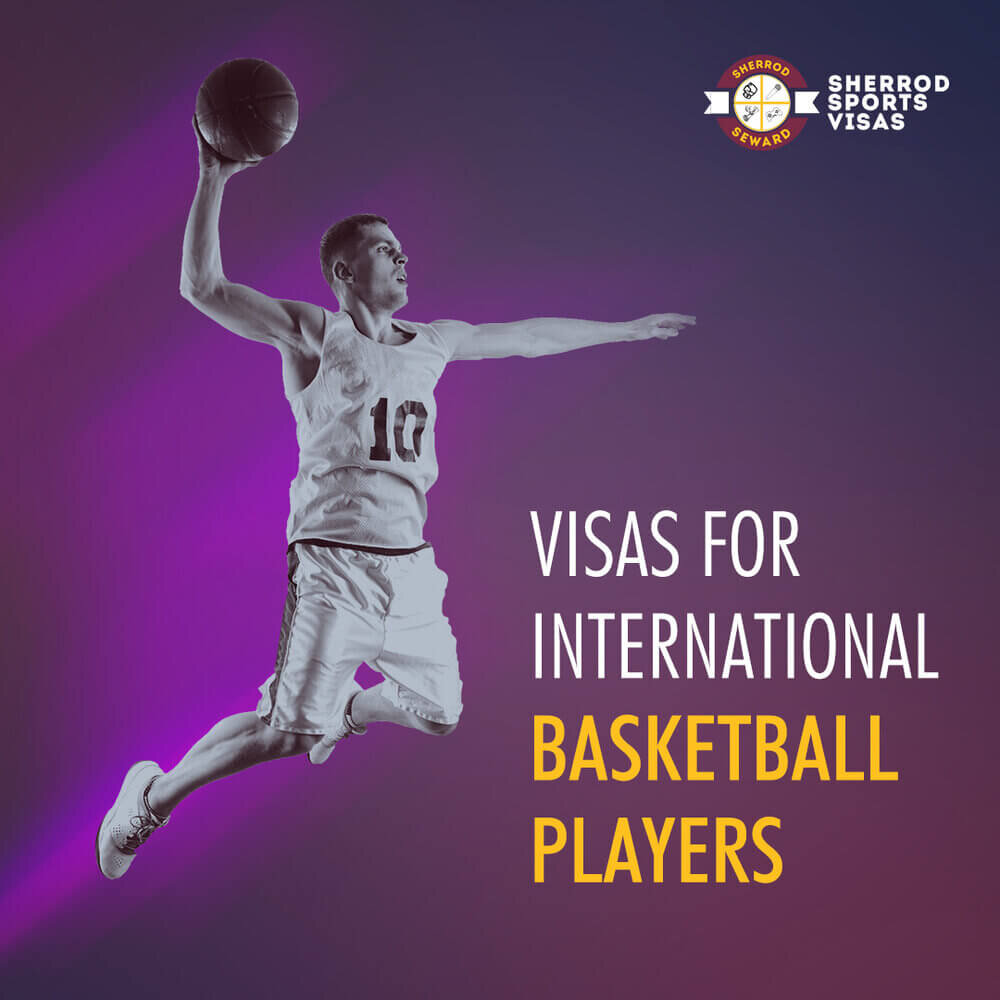Immigration Solutions for Professional and Amateur Basketball Players
Foreign basketball players who aspire to play or train in the United States on a consistent basis have unique immigration concerns that are sensitive to their particular circumstances. Sherrod Sports Visas enjoys tremendous success with helping foreign players obtain and maintain the proper immigration work authorization to compete in the National Basketball Association, the NBA G League, NBA developmental programs, and other professional basketball opportunities. We also assist foreign basketball players with making the transition from graduation from high school or college to professional levels.
Athletes who are not signed to a professional team in the United States but want to train at one of the many world-class basketball training facilities and camps in the United States must be very careful to choose the best visa option for their aspirations. Choosing the correct visa category helps foreign basketball players avoid immigration issues in the future due to unauthorized work.
O-1 and P-1 Visas for International Basketball Players
P-1 visas are appropriate for foreign professional basketball players who have player contracts with professional and semi professional leagues, tournaments, and/or events that require the participation of international athletes. The P-1 visa is not appropriate for foreign basketball players who are looking only to train in the United States, fulfill endorsement contracts, play in amateur competitions, and/or do not have a playing contract in the US. Failure to properly utilize a P-1 visa could present issues when foreign basketball players later try to renew a nonimmigrant visa or pursue permanent residence.
A P-1 visa is appropriate for foreign basketball players in the following situations:
Fulfilling player contract with professional or semi-professional league
Competing in the NBA Combine or other world-class talent showcase
Competing in exhibitions with or against a professional team in the United States
Competing in tournaments that attract international competition
Talent showcases that attract international competition
Coaches who are employed by the NBA or NBA teams
O-1 Visas for Foreign Professional Basket Players
O-1 visas are appropriate for foreign professional basketball players who have extraordinary accomplishments and an itinerary that includes basketball-related activities. O-1 visa candidates can have a professional basketball contract in the United States but the contract is not necessary. O-1 visas are appropriate for foreign basketball players who are coming to the United States to train, fulfill endorsement contracts, attend special camps, do promotional tours, film in commercials and movies, and other general purposes. The O-1 visa is very helpful for athletes who train in the United States in preparation for the NBA draft, play in high school and/or college (in certain circumstances), or have other opportunities to participate in basketball activities in the United States that do not include a player contract.
O-1 visas have a higher eligibility burden than the P-1 visa but have greater flexibility for work authorization. O-1 visas require awards with international recognition, support letters from industry experts, and other unique evidence to be successful.
Foreign basketball players can use O-1 Visas for the following situations:
Do not have a professional basketball opportunity currently lined up
Will need to train in the United States but compete overseas
Graduating students who need to maintain status
Professional athletes who need to do more than just compete in the United States
Coaches, trainers, and other industry professionals
P-1 VISA FOR BASKETBALL PLAYERS
Basketball players and/or teams who are internationally known or recognized may be eligible for a P-1 visa
Important support personnel of P-1 visa holders can obtain P-1s visas, and the P-1 visa for available for coaches in the NBA
P-4 visas for spouses and children of P-1 visa players with valid status
O-1 VISA FOR BASKETBALL PLAYERS
O-1A classification for professional basketball players who are internationally known or recognized and have extraordinary accomplishment and skills
O-1A or O-1B for coaches, trainers, and other support personnel
O-2 classification for essential support personnel, business and training staff, of foreign basketball players who have O-1 status
O-3 visas for spouses and children of O-1 basketball players with valid status
NBA International Player Rules
Notes for International Player Rule – NBA Collective Bargaining Agreement
The NBA Draft has special rules for players that are classified as International that may exclude the player from having to be one year out of high school.
A summary of how to maintain international player status is below:
Maintain residence outside of the United States for at least three years
While participating in an amateur or professional team outside of the United States
Cannot compete in either college or high school basketball in the United States
NBA Collective Bargaining Provisions
Section 1. Player Eligibility. (a) No player may sign a Contract or play in the NBA unless he has been eligible for selection in at least one (1) NBA Draft. No player shall be eligible for selection in more than two (2) NBA Drafts. (b) A player shall be eligible for selection in the first NBA Draft with respect to which he has satisfied all applicable requirements of Section 1(b)(i) below and one of the requirements of Section 1(b)(ii) below: (i) The player (A) is or will be at least nineteen (19) years of age during the calendar year in which the Draft is held, and (B) with respect to a player who is not an international player (defined below), at least one (1) NBA Season has elapsed since the player’s graduation from high school (or, if the player did not graduate from high school, since the graduation of the class with which the player would have graduated had he graduated from high school); and

